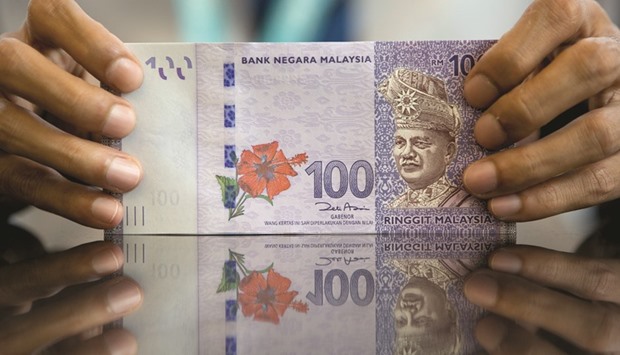Islamic bond sales are off to a racing start this year as Malaysia plans to tap the market following Indonesia’s $2.5bn issue, which was more than three times oversubscribed.
Global sukuk offerings of $11.3bn are already 30% more than the first quarter of last year and are approaching the $12bn for the same period of 2014, data compiled by Bloomberg show. Malaysia selected JPMorgan Chase & Co, CIMB Group Bhd, Malayan Banking Bhd and HSBC Holdings to arrange investor meetings for as early as the end of this week, said people familiar with the matter, who asked not to be identified because the process is private.
Emerging-market dollar bonds are rallying this quarter after commodities rebounded and the Federal Reserve signalled a more gradual pace for US interest-rate increases. A recovery in crude has helped make the ringgit Asia’s best-performing currency this year, and should also shore up government finances in Malaysia, which has a higher credit rating than Indonesia. Prime Minister Najib Razak is seeking to cut the fiscal deficit after introducing a goods and services tax.
“Investors will view Malaysia’s planned sukuk favourably because the country’s fundamentals have improved,” said Wan Kamaruzaman Wan Ahmad, the Kuala Lumpur-based chief executive officer at Kumpulan Wang Persaraan, Malaysia’s second-biggest pension fund with $27bn in assets. “The timing is also good given the Fed’s recent dovish statement.”
The new debt is being sold just as $1.2bn of Shariah-compliant notes comes due in July, which would leave three outstanding issues. The nation doesn’t have any regular dollar debt.
In a sign of the demand that Malaysia’s government debt is attracting, a 4bn ringgit ($998mn) sale of 10-year local-currency Islamic notes last Wednesday garnered a bid-to-cover ratio of 3.2 times. That’s the highest since March 2015, data compiled by Bloomberg show.
Indonesia’s sale drew $7.7bn in orders last week, similar to the $6.8bn it received for a $2bn offering last year. It issued five-year sukuk at 3.4% and 10-year securities at 4.55%. The nation is rated the lowest investment grade of Baa3 by Moody’s Investors Service, three levels below Malaysia.
Both countries are tapping investors as a Bloomberg index of emerging-market sovereign debt climbed 5.5% this quarter, set for the biggest three-month gain since September 2012. The ringgit strengthened 7.1% against the dollar in 2016, while the rupiah gained 4.4%.
The yield on Malaysia’s 2025 sukuk dropped 50 basis points this year to 3.11%, according to data compiled by Bloomberg. Indonesia’s similar notes pay 4.42%, down 53 basis points from December 31.

Malaysian ringgit banknotes are counted at the RHB Investment Bank headquarters in Kuala Lumpur. A recovery in crude prices has helped make the ringgit Asia’s best-performing currency this year.
